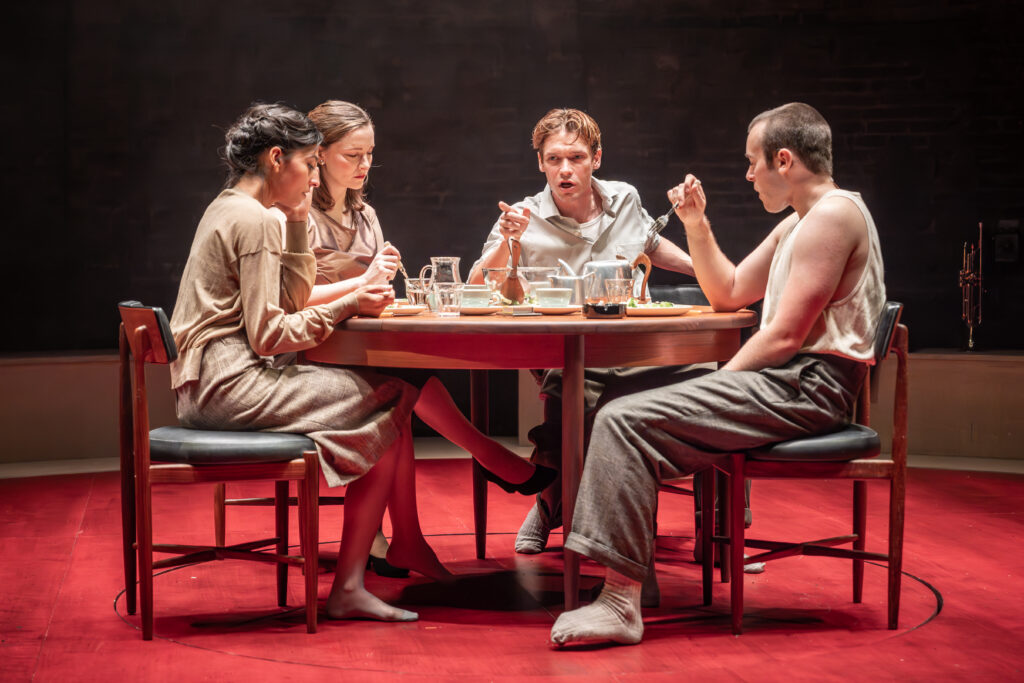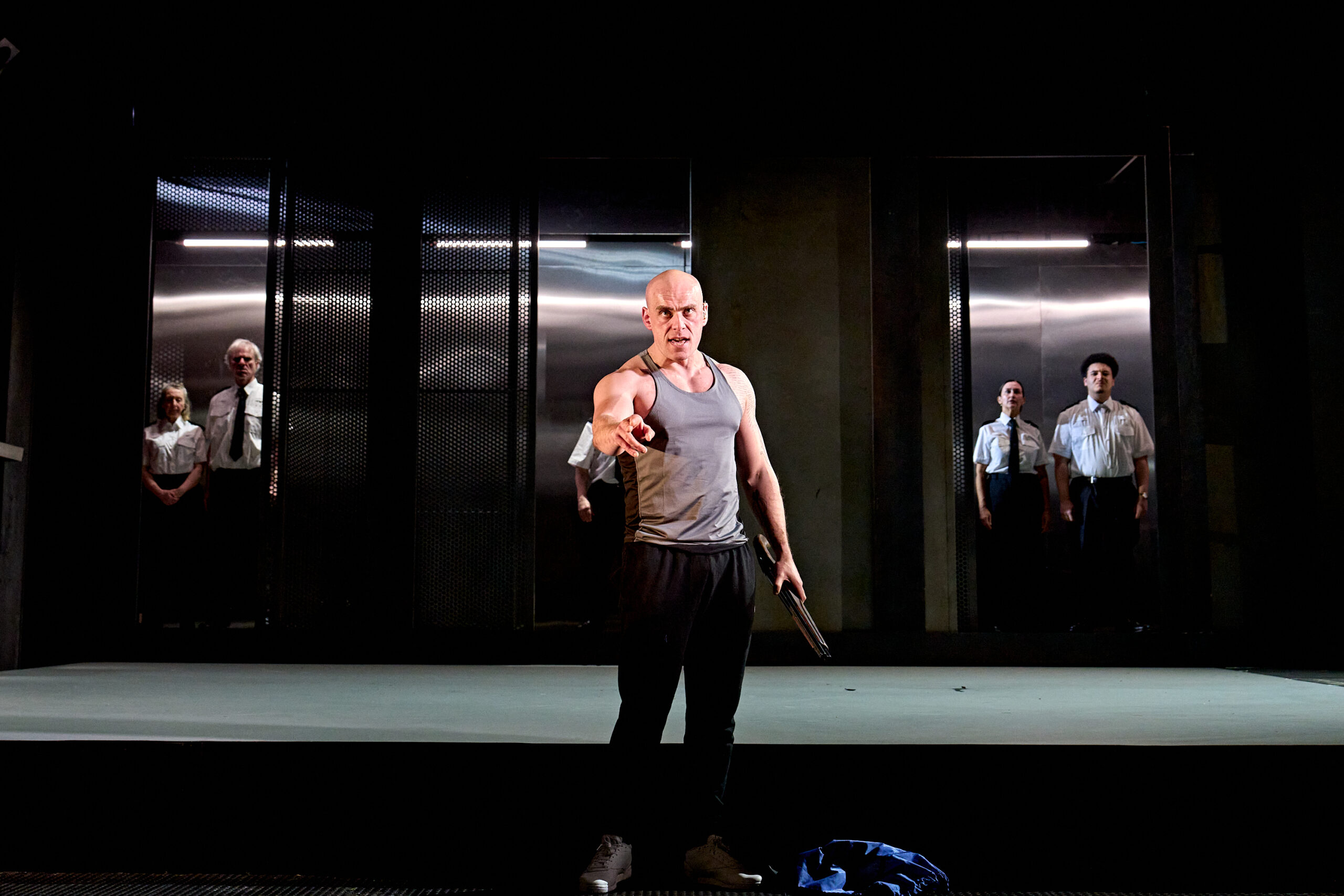
The reviews are in for Look Back in Anger – half of the Almeida’s Young & Angry season alongside Roots.
Former Almeida Resident Director Atri Banerjee (The Glass Menagerie) directs Billy Howle (The Perfect Couple) and Ellora Torchia (Midsommar) in a new production of John Osborne’s ground-breaking, furious play.
Take a look at what the critics are saying below.
Look Back in Anger – Almeida Theatre: Review Round-up
The Arts Dispatch ★★★★★
“[Billy] Howle’s Jimmy is the ferocious heart of a furious production – all eye twitching, lip licking and hands ticking as he riles himself up in his one-man crusade. His fury is stocked full of misogyny but it’s not just rhetoric: he is emotionally abusive too, with hints of physical abuse. “I did it on purpose,” he says, after knocking over her ironing board, causing her to burn her arm. You wonder where Jimmy would be if he lived in the present day. His self-pitying tirades may be long-winded and become increasingly tiresome as the play wears on but what far-right keyboard warrior venting their spleen on Twitter isn’t the same – the path to radicalisation is clear. In this context, Banerjee’s production seems like a warning.”
Broadway World ★★★★★
“Emphasising Jimmy’s animality, Billy Howle only deepens the fleeting fragments of his scorched humanity. He lurks, head hunched forward, rhino-like, ready to charge horn first and smash everything in his path, spewing acidic cruelty but framed it in lyrical poetry. His nihilism mesmerises, but his vinegary bitterness repulses. Contradictions pulling themselves apart. He is a dog chasing his tail trying to bite it off.”
Evening Standard ★★★★☆
“[Billy] Howle becomes more and more tiger-like, pacing the cage, his face flickering, eyes twitching. Banerjee pulls the tension tighter and tighter, a nasty, thrilling tension, in which Porter expresses his vile, misogynistic, insulting views, shoving them at his wife and friend Cliff because there’s nowhere else for them to go.”
The Guardian ★★☆☆☆
“Director Atri Banerjee leans into the version of Jimmy Porter (Billy Howle) as coercive controller and while it is an instinctive interpretation for our day, forensically rendered, it butts up against the play’s shining legacy as a cri de coeur of class consciousness.”
The Times ★★★☆
“What doesn’t come across quite so clearly here is the element of class antagonism. Jimmy is supposed to be raging across a social chasm, but that only becomes apparent with the arrival of Alison’s friend, Helena, given a deb’s accent by Morfydd Clark. In the final act it’s her turn to be subjected to a torrent of misogynistic whining.”














